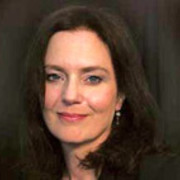
Philippa Boyens
Philippa Boyens began her screen career helping adapt one of the most ambitious pieces of writing in the history of fantasy. Since then she has become a vital cog in the writing team behind Peter Jackson’s screen reimaginings of 30s classic King Kong, modern-day tragedy The Lovely Bones and JRR Tolkien's first novel, The Hobbit. Aside from her writing contributions, Boyens has been listed as a co-producer on all of Jackson's features since The Lord of the Rings, as well as sci-fi hit District 9.
Boyens studied English and History at Auckland University, and worked in theatre as a writer, producer and script editor. She also spent time as director of the New Zealand Writer’s Guild. Boyens became a Tolkien fan as a child. When she came onboard to help the writing team on The Lord of the Rings, she'd already read the trilogy seven times.
In a 2001 interview with The Evening Post’s Simon Beattie, she described her "atypical" experience of being a first time screenwriter. “What should happen is that you don’t get to write three films at once, they don’t get green-lit, you go through development hell and the studio executives are horrible. In my case not only did I get to see the scripts become films but the studio was a joy to work with."
Boyens, Fran Walsh and Jackson continued the process of honing and revising their scripts during the trilogy's extended shoot. Said Boyens: “With a film this big you have got to leave yourself choices and Peter is very smart like that.” In 2000 Variety magazine named her in a list of 10 writers to watch. Oscar-nominated for her contributions to The Fellowship of the Ring, Boyens would score an Oscar and a BAFTA award for final episode The Return of the King.
The trio of Boyens, Walsh and Jackson reconvened to remake King Kong. The intention was to recapture the magic of one of Jackson's favourite films from childhood, for a new generation who might find the original dated. In the process, the writers strengthened the relationship between the ape and the character of Ann Darrow (Naomi Watts), and turned hero Jack Driscoll (Adrien Brody) into a New York playwright.
The Lovely Bones, which followed in 2009, marked a stylistic change from Jackson's recent run of epics. It was Boyens and Walsh who first brought Alice Sebold's novel to Jackson's attention. Boyens found this story of family, the afterlife and childhood curtailed "especially tricky" to adapt. "It's so incredibly layered and emotional and it's not linear, so it was an ongoing process, step by step, of finding our way through."
The Hobbit (2012-14) repeated the year by year, three part release of Lord of the Rings. The films were based on the book in which Tolkien first introduced Middle-earth and the ring to the world. At one point during the extended process of getting the project off the ground, the writing team were joined by Mexican Guillermo del Toro (Hellboy), who was attached to direct before Jackson took up the reins. In an attempt to offset the "masculine energy" of the tale's dwarf-heavy cast, the writing trio introduced a new female character, elf Tauriel, played by Evangeline Lilly (Lost).
Fantasy Mortal Engines marks the first Boyens/Walsh/Jackson script which Jackson has not ended up directing. Based on the first of four acclaimed books by Brit Philip Reeve, the post-apocalyptic tale of cities on the move marks the debut feature as director for Oscar-winning visual effects artist Christian Rivers.
Updated on 5 September 2018
Sources include
Simon Beattie, 'Dream comes true for a Kiwi mum' (Interview) – The Evening Post, 18 December 2001, page 9
Tom Cardy, 'Philippa Boyens: film powerplayer' (Interview) - The Dominion Post, 16 November 2012
Brian Sibley, Peter Jackson: a Film-Maker's Journey (Sydney: HarperCollinsPublishers, 2006)
'Production Notes', The Lovely Bones website (broken link). Accessed 18 November 2012